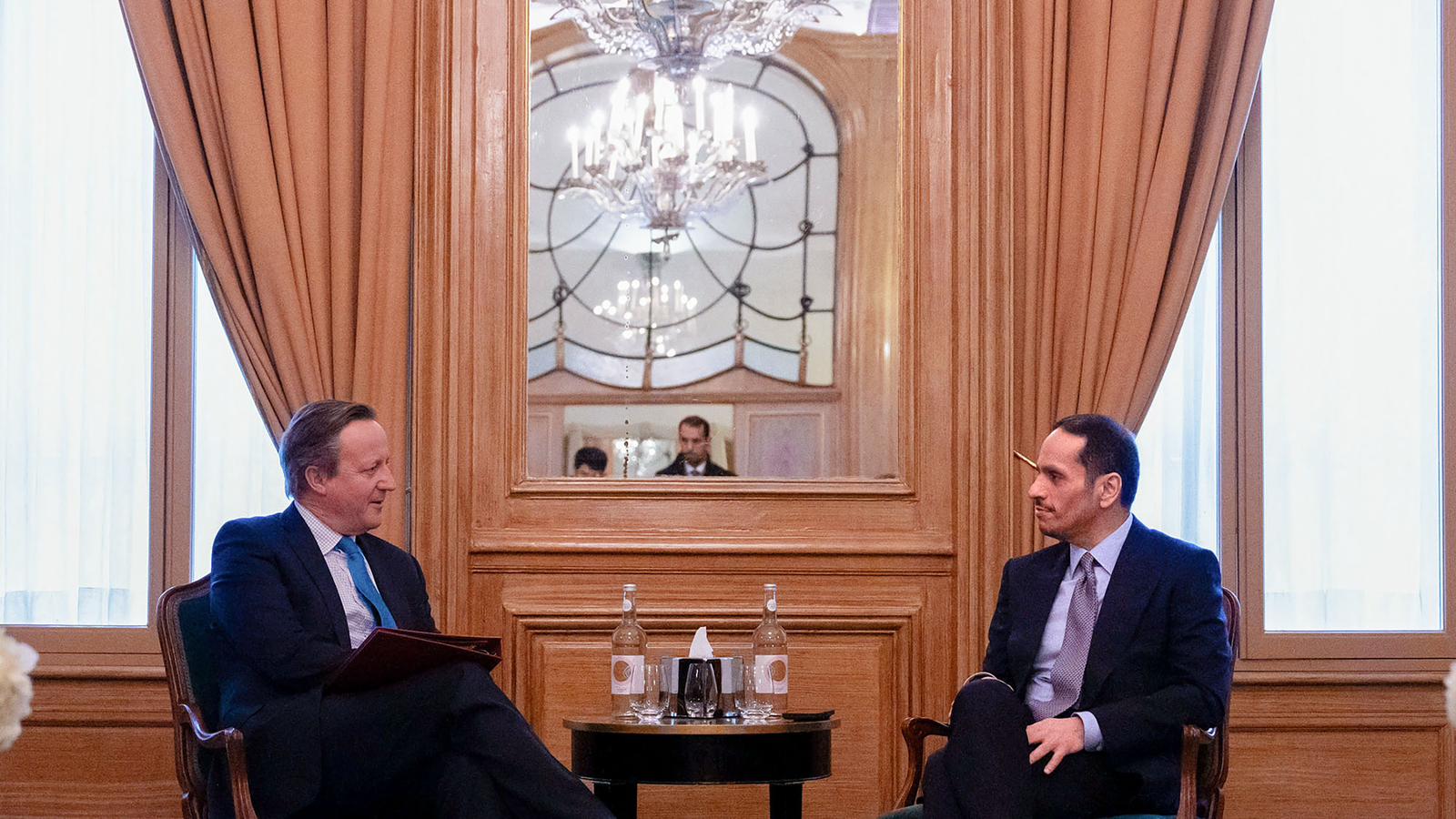The Qatari Prime Minister and the British Secretary of State discussed bilateral ties and the Gaza crisis, addressing the dire humanitarian situation caused by Israel’s onslaught.
The Qatari Prime Minister and Minister of Foreign Affairs, Sheikh Mohammed bin Abdulrahman Al Thani, met with the British Secretary of State for Foreign, Commonwealth and Development Affairs, David Cameron.
On Wednesday, a statement by the Qatari Ministry of Foreign Affairs said that the two discussed Qatari-British ties and ways to further develop them.
Also on their agenda was the crisis in Gaza under Israeli siege.
The Gaza Ministry of Health (MoH) reports that since October 7, the Palestinian death toll in the Strip has grimly climbed to at least 30,717 people. This figure doesn’t include casualties trapped under the rubble who can’t be reached safely.
Israel’s onslaught has also left at least 72,156 Palestinians injured. Despite the sheer toll taken on Palestine’s innocent, Israel’s occupational forces have also hit Gaza’s health facilities.
The Gaza MoH also reports that at least 155 health facilities and a further 126 ambulances have sustained damage. Worse still, only 12 hospitals remain functional, six in the north and six in the south – and yet, only partially.
Israel has also weaponised access to fresh water and sanitation, completely cutting off supplies to northern Gaza. One out of three water pipelines from Israel to Gaza is functional, but only at 42% capacity. The United Nations’ Humanitarian Office (UN OCHA) added that 132 groundwater wells have either sustained damage or are now destroyed.
During their meeting, Sheikh Mohammed and Cameron emphasised the importance of upholding the human rights of Palestine’s civilians – including methods to ensure the flow of humanitarian aid to those most affected.
‘Aid to Gaza must increase’ – Cameron
Also on Wednesday, Britain’s Foreign Secretary David Cameron had “tough, but necessary conversations” with Israel’s Benny Gantz – a political nemesis to Benjamin Netanyahu.
In a post via X, Cameron said that he “made clear the steps Israel must take to increase aid into Gaza”.
In a humanitarian needs and response update by UN OCHA, the food scarcity situation in Gaza, particularly in the northern governorates, is extremely severe, with Palestinians forced to animal fodder just for survival.
The UN agency stressed that the worrying levels of malnutrition, or worse – famine, in the enclave shows “the urgent need for humanitarian assistance and intervention”.
UN OCHA added that humanitarian aid missions to Gaza face a series of challenges. For instance, Israel’s brutal war has internally displaced at least 1.7 million Palestinians.
The UN agency reported that due to Israel’s continued bombardment, many Palestinians are forced to repeatedly flee. This makes it different for aid agencies to adequately track the movements of those displaced and provide the required assistance.
Worse still, the occupier-induced telecommunications blackouts further impair the coordination between emergency response units and aid agencies by causing unstable connectivity.
Referring to Israel as the “occupying power in Gaza,” Cameron said that the aggressor has a legal responsibility to ensure the safe entry of aid into the enclave for civilians.







